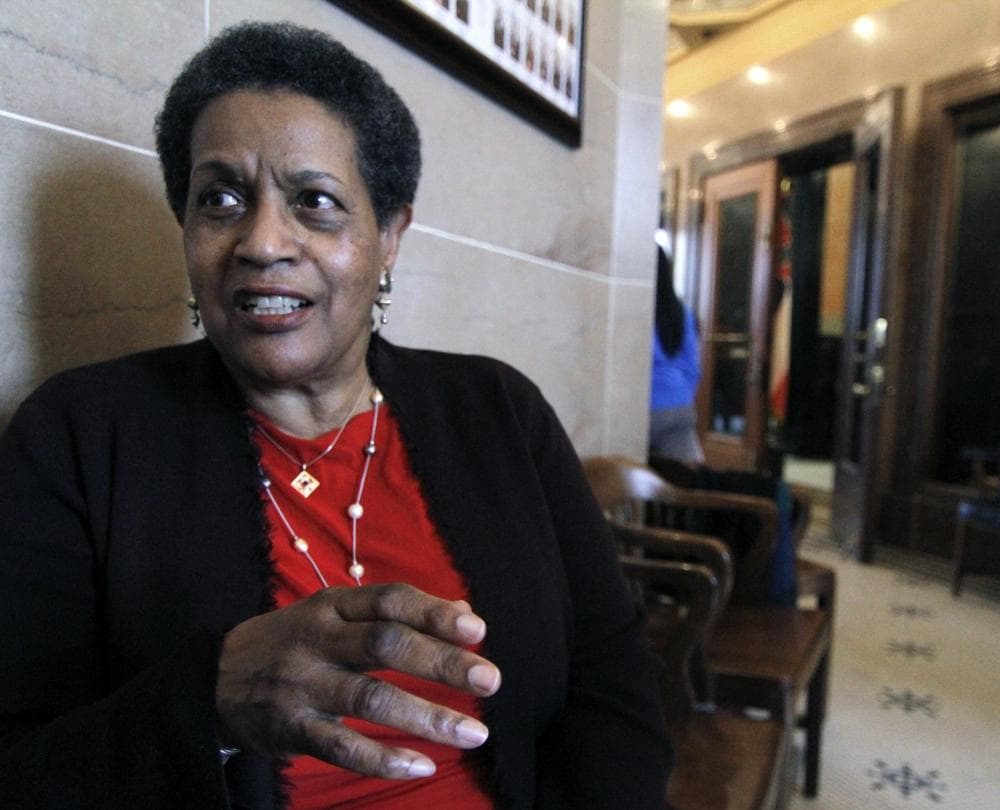Advertisement
Confronting Our Legacy Of Racial Violence (With A Little Help From The President)
President Barack Obama’s choice of Myrlie Evers-Williams to deliver the invocation at his second inauguration shifts the nation’s gaze on this Martin Luther King Jr. Day, ever so gently from the euphoric post-racialism of a black presidency to a legacy of racial violence that has not yet been put to bed, as it also signals, perhaps, the president’s intention to devote public space to this still unsettled issue.
By dint mostly of her own persistence, nearly three decades after her husband Medgar Evers was murdered, Evers-Williams succeeded in having his case reopened. In so doing, she opened up challenging questions about how best to repair remote harms and to gain communal integrity from difficult, and differing memories of the past. In 1994, after two previous trials ended in a hung jury, her husband’s killer was convicted. It was, she said, a moment of personal peace and collective justice. What followed were fresh trials of many other civil rights era cold cases and, in spheres outside the courtroom, echoes of the new southern justice in the form of public apologies and truth processes.

Questions abound about the efficacy and meaning of these modes of revisiting the troubles of the mid-20th century, but we stand our best chance of producing a collective memory of the period that is coherent, complex, and perhaps partially conclusive, under this president’s guidance.
Time is not on our side. Fading are the memories of those affected by the violence, and opening old wounds is risky, and so presidential intentionality is crucial.
Research shows that those with the healthiest appetites to pick through the bones of this uniquely American terrorism are young people whose families experienced the violence and who continue to live on the economic and social margins, while most others have disjoined from the King years to a present that is for them more culturally comfortable.
There is much left to unearth about the experiences of the victims of mid-20th century racial violence. It is anybody’s guess how many were slain; folklore about rivers full of lynching victims must be wrong, but so too is the common perception that the list begins and ends with the likes of King, Evers, and Emmett Till.
Time is not on our side. Fading are the memories of those affected by the violence, and opening old wounds is risky, and so presidential intentionality is crucial.
We know too little of the permeating effects of violence that seeped outward into communities far beyond the individual perpetrator and victim, infecting the larger landscape of the movement years and, despite King’s strategic pacifism, invigorating with lasting consequences America’s tolerance for violence.
Moreover, the toolbox currently prescribed for examining this history is neither fully utilized nor fully adequate. As for the cold case revivals, while they bring relief and factual clarification to victims, they also reinforce myths that most harms can be laid at the feet of oddball Klansmen or renegade lawmen, and the verdicts can prematurely close down discussions of the past. Statutes of limitations stand in the way of civil suits that, in addition to compensating victims, could enhance the accuracy of the historical record by critically testing witness recollections.
In the best of circumstances, only partial answers to the questions of what happened, who did it, and why can come from the courtroom. The task of sustaining and correcting national memories of an unpleasant past calls for national cultivation to rework an account that is tainted with silence and denial, while linking progressive change and social action to the creative resistance of the civil rights era.
Advertisement
The earliest decisions of his new term suggest President Obama may be up for the contentious business of building our collective memory — an apt commemoration of Martin Luther King Jr.
Related:
This program aired on January 21, 2013. The audio for this program is not available.